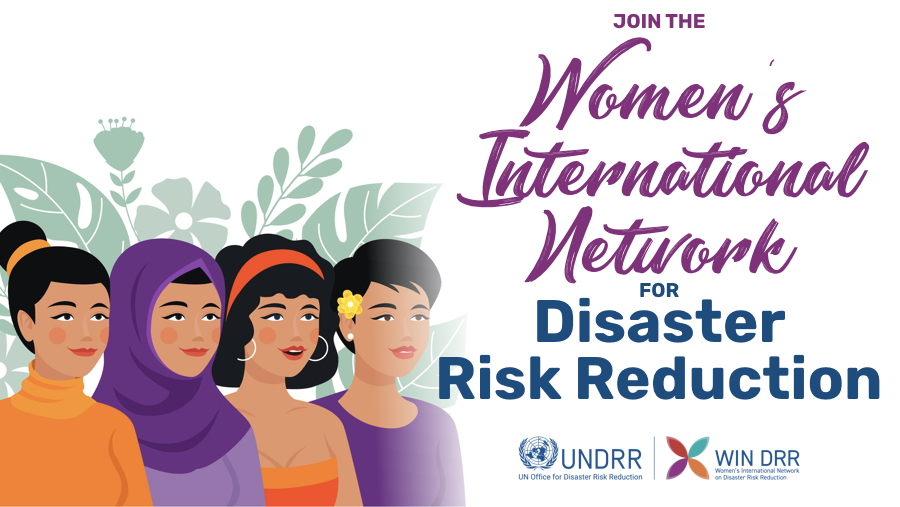WIN DRR Leadership Awards: Shortlisted candidates – Excellence award
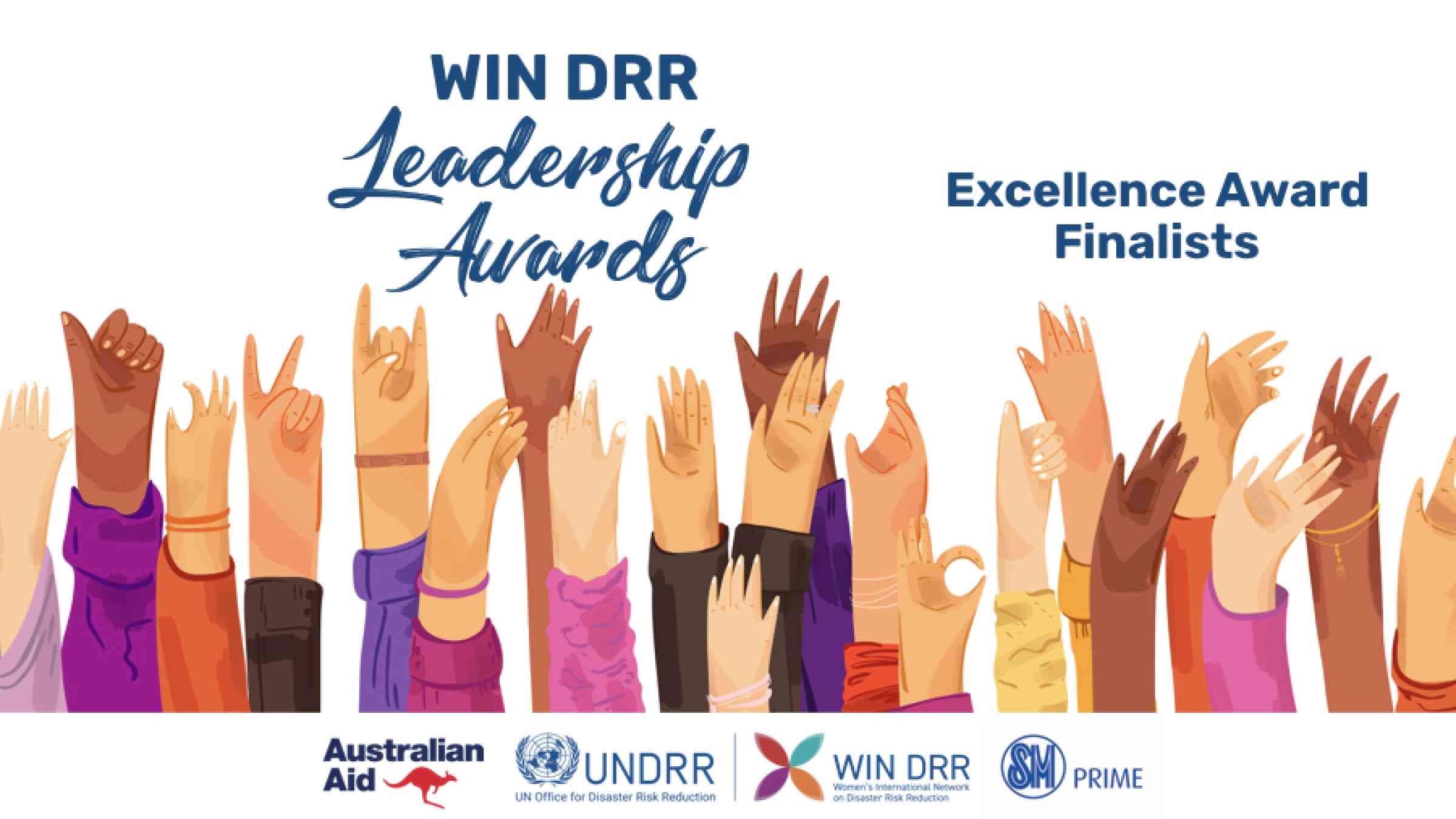
Asia and the Pacific is the most disaster-prone region in the world. Women across the region are helping us to understand and reduce the risk of disasters we face. This collection of inspiring women are finalists for the Women’s International Network for Disaster Risk Reduction Leadership Awards. The diversity of their stories reflects the breadth of solutions required to meet the challenges of climate change and increasingly intense disasters in the region.
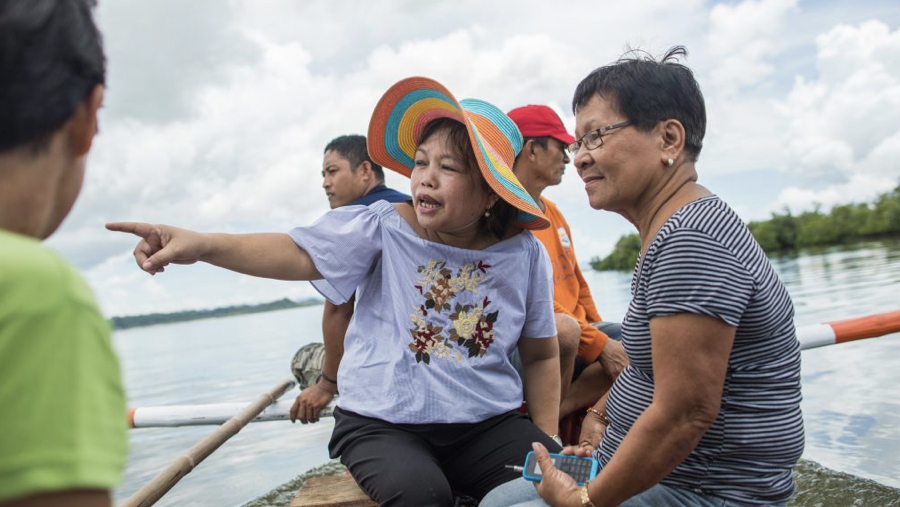
Jazmin Aguisanda-Jerusalem – Philippines
“When women band together, when they work together, they see their true value,” Jazmin says. “It’s not because they want to isolate the men or go against them, it's just that we have been relegated to second-class citizens for so long.”
Jazmin Aguisanda-Jerusalem has been involved in development work with special focus on disaster preparedness and mitigation since 1981. She has supported 200 poor and vulnerable communities in Samar and Leyte provinces, Eastern Visayas of the Philippines. Jazmin has led her team to organize Disaster Preparedness Committees based in poor communities. Members are equipped with knowledge and skills on disaster preparedness and response and supported to mitigate the impact of disasters.
“Community is important because your neighbor will be the first responder in times of a disaster,” Jazmin says. “It's not the government, it’s not the NGOs, it's your neighbor, it’s your community.”
Jazmin is the Executive Director of the Leyte Center for Development. She is the National Chairperson of the Citizens Disaster Response Network, a national network of DRR NGO's operating in all the 17 Philippine regions.
“We have proved the community approach in four decades of doing DRR programs empowering women,” Jazmin says. “Once women are aware of their rights, it's like wildfire. They are so good at organizing, these women can do anything.”
Jazmin led the LCDe team in a "Climate Change Adaptation by Enhancing Natural Resilience" programme which planted 302 hectares of upland forests and 7 hectares of mangrove and bamboo and mobilised youth volunteers to guard their Marine Protected Areas.
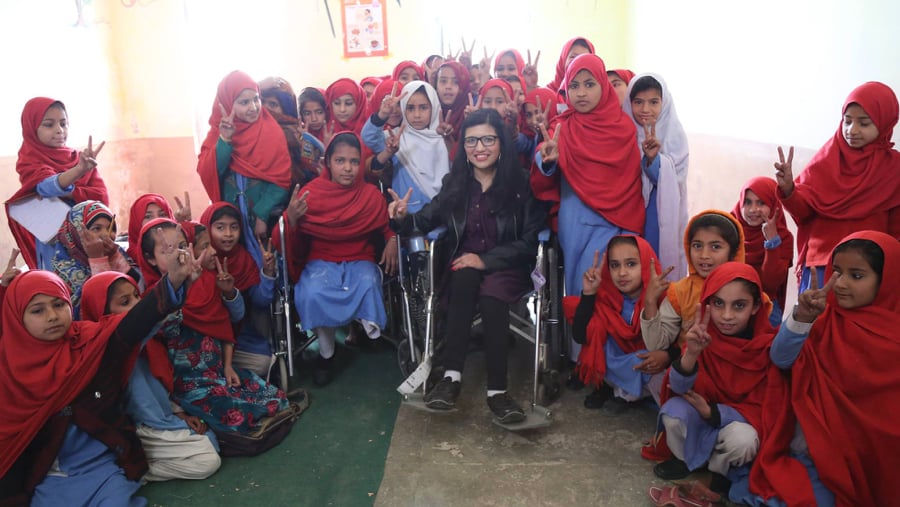
Abia Akram – Pakistan
“Disability is just a different lifestyle and I'm very proud of my disability,” says Abia. “The question is how we can give that understanding to other persons with disabilities, so they can accept that.”
Abia Akram is a Pakistani disability rights activist. She is the founder of the National Forum of Women with Disabilities in Pakistan, and a leading figure within the disability rights movement in the country as well as in Asia and the Pacific.
In 1997 Abia got involved in disabled people's organizations and founded the Ageing and Disability Task Force, which is a coalition of twelve organizations that work for a mainstreaming of concerns around ageing and disability in humanitarian agencies. Abia was the coordinator for the Ageing and Disability Task Force during the 2010 Pakistan floods, making sure that disability inclusiveness was a part of the UN Humanitarian Emergency Response.
Abia says they are able to cross reference flood and community data to target support for people with disability in disasters. “Every year, when it rains the floods often come in the same locations,” Abia says. “We started talking to those families about how to evacuate people with disabilities. We put flags on homes where we identified a person with disabilities,” she says. “With better systems, when the floods come, they are safely evacuated.”
Abia advocates for the rights of persons with disabilities; lobbying with policy makers in the public, private and development sector for inclusion of persons with disabilities in the process. She conducts consultations for the empowerment of persons with disabilities by creating an accessible environment; and promotes accessible information for persons with disabilities from services of health, education and livelihoods.
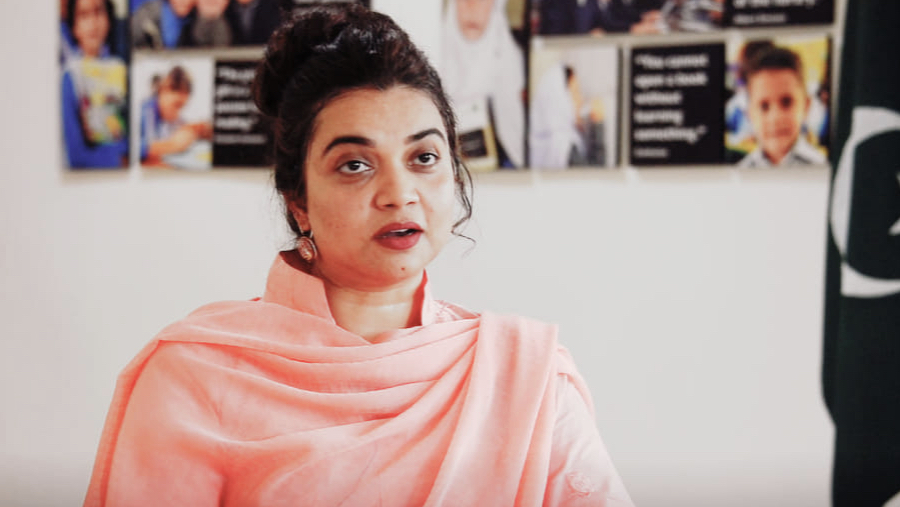
Dr Shaheen Ashraf Shah – Pakistan
“Even though the country has become a food surplus country, people are still food insecure,” says Dr Shah “ while in pandemics and disasters, women, disabled and children suffer the most.”
Dr Shah has come a long way from her rural upbringing in Pakistan to become the gender and disability lead for the Nobel Laureate (2020) - United Nations World Food Programme, Pakistan Office. She has worked in the development sector for twenty years. Her experience has revolved around conducting gender research and implementing disaster response. She is helping governments and organizations to integrate gender goals into DRR policies and programs.
“When we examine women in a disaster, some people only talk about vulnerability,” she says. “Too often we see them as victims, but I find women extremely productive in rebuilding their communities and caring for their children. The potential of women has not fully been explored and integrated.” However, she demonstrates how her acts of rigorous research, fieldwork, training and sensitization create change for gender equality in DRR. Her work on women, disaster and water is now acknowledged internationally. Her research concluded that integrating gender into DRR adds more value to it. She is one of the few Pakistani women professionals working in the male dominated water sector and her profile was featured in a book Women Managing Water, inspiring stories from South Asia’ .
Dr Shah has an impressive list of research publications, awards & grants. She has presented her work in the UK, USA, Australia, the Netherlands, Sweden, Spain, Nepal, India and others. She has worked for organizations such as Creatives International, UN Women, UNHCR and others. She was a visiting research fellow at the University of Western Australia and WEDC- Loughborough University, UK and led UN Women’s Gender Task Force during floods in Pakistan.
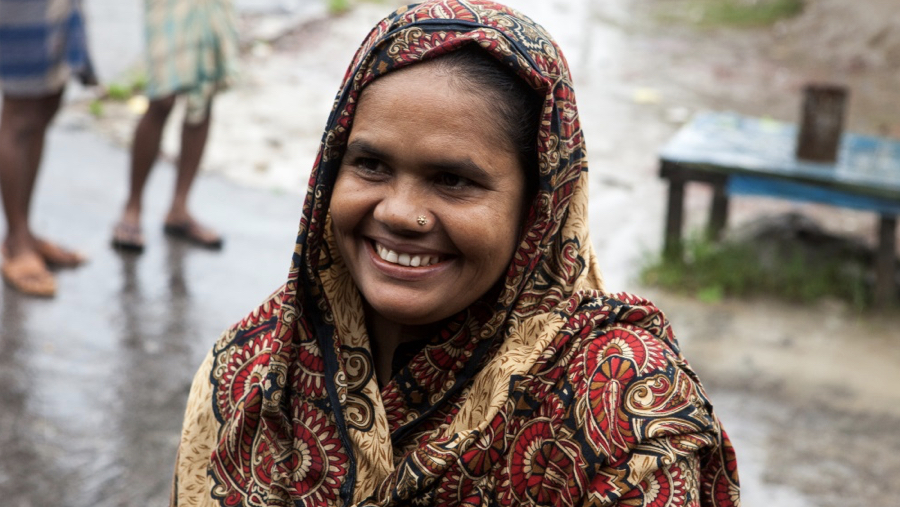
Laily Begum – Bangladesh
“Women are active agents of change,” says Laily. “We believe goals can be achieved through collective efforts, ideas and energy; so networking is critical.”
Laily Begum is a community volunteer. She is working to organize and train women community volunteers to play their role in disaster preparedness and emergency response. She and her group introduced Women-Led Emergency Response in 2013 during cyclone Mahashen response. This initiative was a shift in how things are done in Bangladesh, and proved that all disaster risk management, including the emergency response can be done by women. The approach has since been widely adopted.
"We are working collectively to reduce disaster risk, and raising awareness of women, excluded and marginalised groups,” Laily says. “If others from the communities come forward and join us, we will be able to achieve greater results for building resilience.”
Laily’s initiative has increased the confidence of the rural women on the south coast of Bangladesh to bounce back from the impact of cyclones and salinity. She has also built the capacity of women to prevent and respond to gender-based violence during and post-disasters.
These interventions are linking rural women to the local government institutions and different service providers so they can access support and services for disaster preparedness and response.
“We inform the community, especially women, persons with disabilities, elderly, and children, on the forecast of the cyclone and probable time of landfall,” she says. “This decreases the number of deaths and injuries during cyclones and disasters in the community.”
Laily and her team also conduct search and rescue operations after a disaster or even during emergency response, practicing a gender-responsive approach. They lead the early and long-term recovery processes, ensuring sexual reproductive health support to young women, pregnant women and mothers.
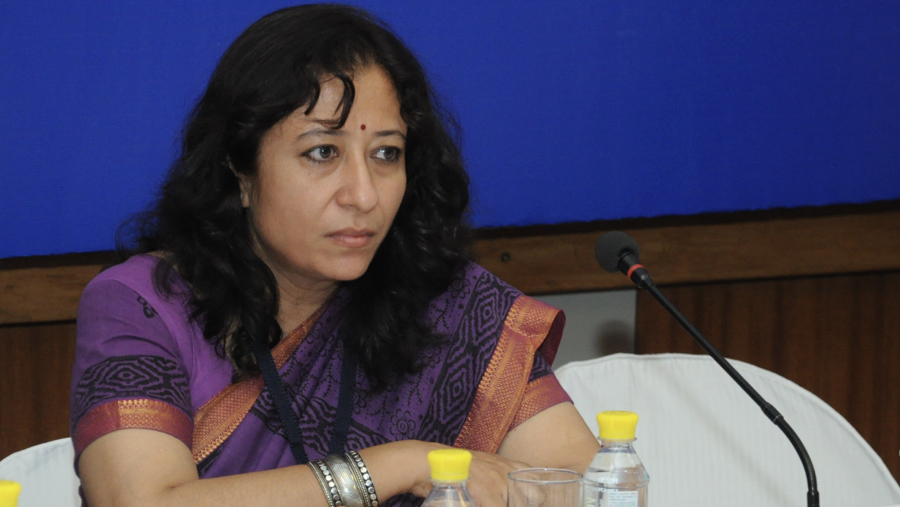
Bijal Brahmbhatt – India
“Climate change and disasters like flooding are more frequent in India,” Bijal says. “When the houses in poor communities get flooded all the people climb on the roof just to save their lives. It is the women who go down to clean all the muck after the water recedes.”
“There are a lot of women who die post-disaster because in the mud and debris there are many snakes and they get bitten while cleaning up.”
Bijal Brahmbhatt is a pioneer in recognising that climate shocks and stresses for the poor are mediated through housing and habitat they live in, and that they are forced to absorb ‘loss & damage’ caused by climate variability driving them into poverty and limiting their capacity to adapt.
“We realized that housing for women in poorer communities was often impacted by disasters because it was located in low-lying, vulnerable areas,” Bijal says.
Early in her career, she identified that building resilience requires action at all levels of society—from individuals to organizations – from academics, market-based solution providers, local, state, and national governments, and international bodies.
In 2015, Mahila Housing Trust started integrating climate change related shocks and stresses as a part of their disaster programme. This includes heat waves, flooding and inundation, water scarcity, increased climate change-related incidence of water and vector borne diseases in 100 slums, across seven cities in three countries of South Asia.
“We need to work a lot on integrating disaster risk reduction, climate change, women's empowerment and sustainable development,” Bijal says. “We need to develop women leaders to support good governance and disruptive collaborations with the market. It’s about using technology and demystifying the process to influence policies with both digital and non-digital technologies.”
MHT has gone on to build the resilience capacity of women from over 30,000 families spread across South Asia supporting 1,650 Community Action Group women leaders.
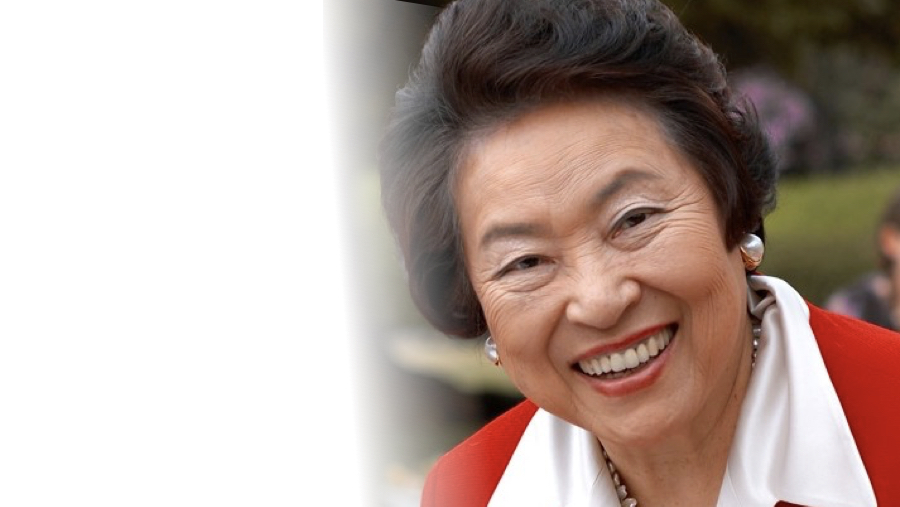
Akiko Domoto - Japan
Akiko Domoto established a nation-wide network for women and CSOs working for DRR called "Japan Women's Network for DRR", and has been lobbying the cabinet, government agencies and international organizations concerned with DRR in Japan and the Asia-Pacific region for integration of gender and diversity perspectives into DRR legislation, policies and programs.
Akiko has been actively collaborating with the Gender Major Group and Gender Stakeholder Group for DRR in the region. Her advocacy accomplishments include the establishment of Gender Equality Office in the Reconstruction Agency of Japan, inclusion of gender-responsive clauses in the DRR legislations, increase of the female numbers of local DRR committees and the development of gender-responsive guidelines for emergency shelters by the Gender Equality Bureau.
She has been conducting national and international seminars and symposiums on gender/diversity and DRR for sharing experiences and lessons learnt in different countries and societies.
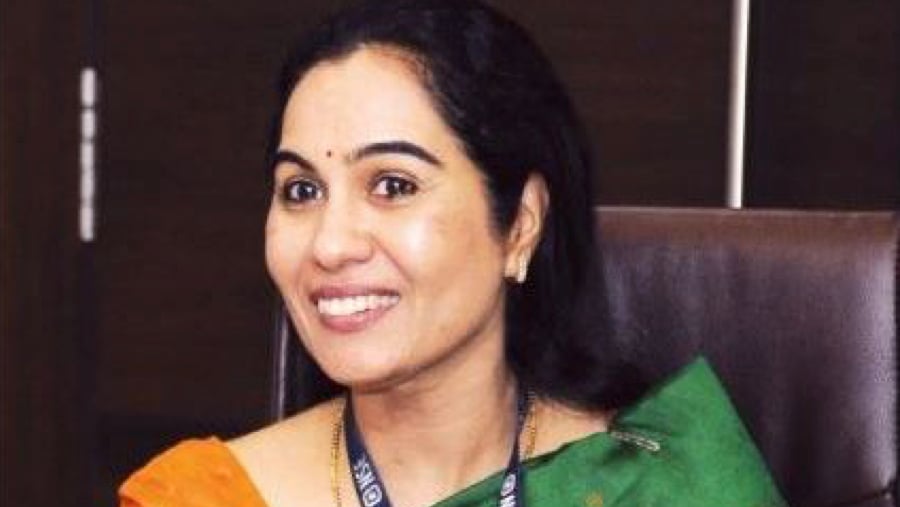
Rema Mohan – India
“In responding to disasters there was often a knee-jerk approach and people didn't think it through, it was just the emotion of the moment that drove people,” Rema says. “It needs to be structured, the response has to be matched to the needs on the ground.”
Rema Mohan is CEO of the NSE Foundation, a subsidiary of National Stock Exchange of India Ltd.. NSE Foundation’s approach to improve the wellbeing of communities is through empowerment, participation and institutionalization of sustainable processes through capacity building and behavioural change communication.
“Our programmes reach the last mile in communities because they are designed through collective participation,” Rema says.
The programmes under NSE’s disaster initiatives encompass relief, repair, rehabilitation and preparedness. “We are trying to move the needle from short term relief to a long-term approach by creating disaster prepared and empowered communities,” she says.
As a woman leader, Rema is an inspiration to women in development and the humanitarian aid sector. As CEO, Rema analyzes the on-the-ground realities and works with her team to design the interventions to best meet the needs.
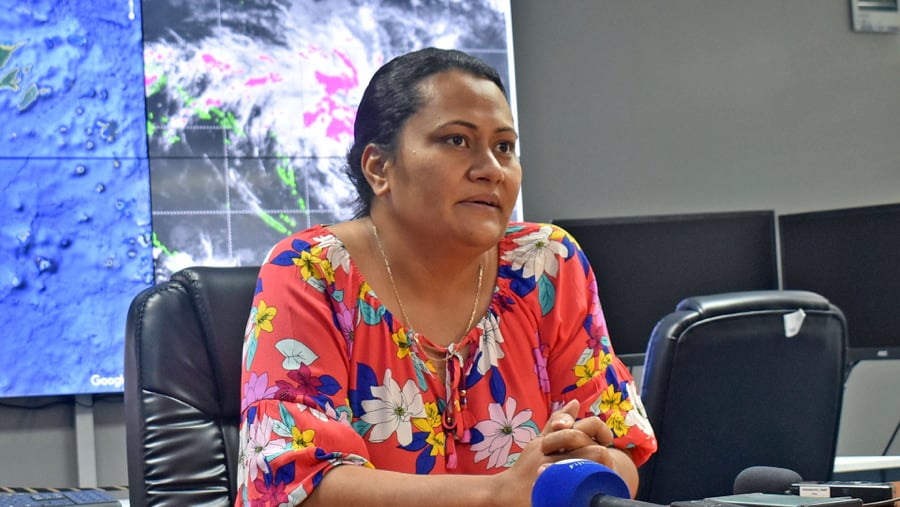
Vasiti Soko – Fiji
“In the 1990’s a massive flood happened in Fiji” Vastiti recalls. “It was an eye-opener as a small child. I've always had this with me; seeing that impact I knew that one day, I will make a difference. That experience has been a driving force towards where I am now.”
Vasiti Soko is the first female Director of Fiji National Disaster Management Office (NDMO) and has coordinated her country’s response to seven tropical cyclones and the ongoing COVID-19 pandemic.
She has worked to ensure effective inter-cluster coordination with a focus on resource mobilisation, leadership, reporting, information sharing, inclusion of vulnerable groups, situational awareness and prioritisation. Vasiti launched Fiji’s National Disaster Risk Reduction Policy and has worked to strengthen the country’s disaster risk management policies and plans.
“Coming into a field that has been male-dominated,” Vasiti says, “I make sure that I am not one or two, I try to be ten steps ahead of them because I'm setting the stone for women that are coming after me.”
Vasiti extended tsunami warning sirens throughout Fiji and is dedicated to ensuring DRR activities at the community level leave no one behind, strengthening psychosocial support and co-authoring a mobile application tool to assist persons living with disability. Vasiti. has a background in geo-science and data analysis and launched the first Pacific Women in Geospatial Science magazine, which encourages girls to explore science.
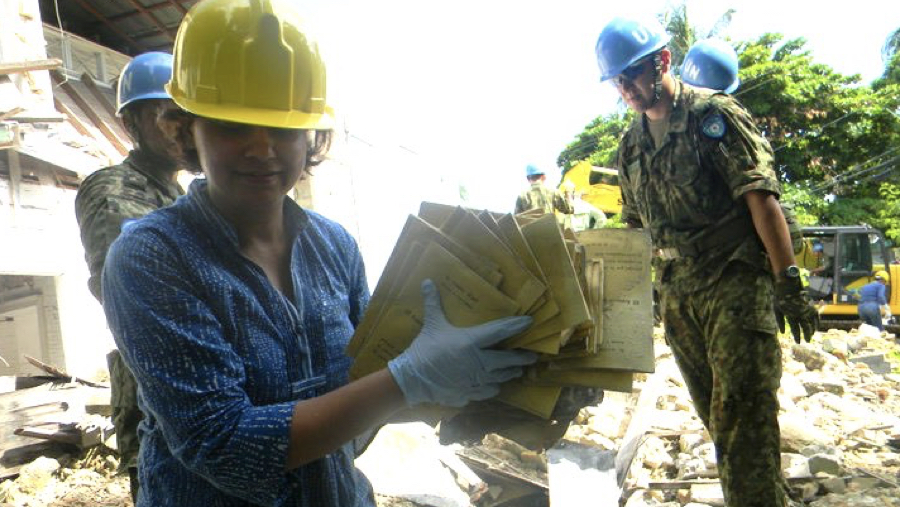
Aparna Tandon - India
“Culture cannot wait - it is an important part of a community's resilience,” says Aparna. “When I started this work, it was not recognized in mainstream disaster risk management.”
Aparna Tandon is Senior Programme Leader at ICCROM, an intergovernmental organization dedicated to promote conservation of cultural heritage. She leads ICCROM’s flagship capacity development programme on First Aid and Resilience for Cultural Heritage in Times of Crisis (FAR) aimed at enhancing capacities for disaster risk reduction through heritage in most risk prone regions of the world including Asia and Pacific.
Aparna has trained ‘cultural first aiders’, who reduce disaster risk for cultural heritage, and through this work enhance the resilience of local communities. Today the network of over 800 cultural first aiders spans 87 countries. Aparna has pioneered the First aid to Cultural Heritage method, which is now being incorporated into civil protection systems in Europe and beyond, through a joint project of ICCROM and European Civil Protection and Humanitarian Aid Organization. Over the past 17 years, through her work, Aparna strived to integrate concerns for cultural heritage into wider disaster risk reduction and humanitarian aid. She is co-chair of the Flexible Response Sub-Working Group on Heritage, constituted by INSARAG (International Search and Rescue Advisory Group), which is working on developing guidelines for international search and rescue teams, extending protection to heritage. She has led emergency response, post-event damage and risk assessments and in-crisis training in Belgium (2021), Lebanon (2020), Croatia (2020), India (2020, 2018), Northern Iraq (2017), Myanmar (2016), Nepal (2015, 2016), Philippines (2013), Haiti (2010).
“We offer in-crisis training, working with communities,” she says. “The goal is to empower them so that they can stabilize and recover their cultural heritage, and build resilience.
Aparna’s current work focuses on using community held traditional knowledge and practices for reducing disaster risk and mitigating climate change. “The knowledge that exists within cultural traditions, rituals, and practices could help us to reduce disaster risk and find place-specific mitigation and adaptation solutions for climate change,” she says. “From traditional building systems to managing water or environmental resources, this knowledge is all scattered. It needs to be gathered systematically and cross-linked with hazard profiles and climate variability data of a place.” In parallel, she is developing multi-hazard risk reduction strategies for heritage places.
Aparna has conducted workshops and field schools for promoting peace and resilience through heritage in conflict-affected countries like Syria, Lebanon, Libya, and Iraq. She has trained military personnel, civil protection teams and humanitarians on effective disaster risk management for heritage and its associated communities.
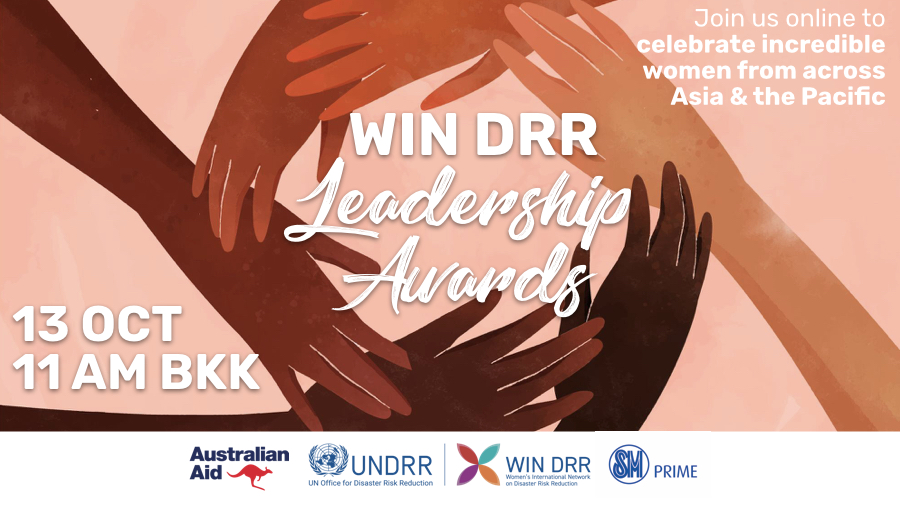
Join UNDRR for the WIN DRR Leadership Awards!
13 October 2021 - 11:00 -11:45 AM Bangkok time
REGISTER NOW
Background
The WIN DRR Leadership Awards recognise women's achievements in DRR across the Asia-Pacific region. The awards are part of UNDRR's flagship women's leadership initiative the Women's International Network for Disaster Risk Reduction (WIN DRR), supported by Australian Aid. There are two award categories, the Excellence Award and the Rising Star Award.
The Excellence Award of US$10,000 will be granted to an individual woman who has achieved exceptional professional success in DRR. These are the finalists for the Excellence Award. The winner will be announced on International Day for Disaster Risk Reduction, 13 October 2021.
The International Day for Disaster Risk Reduction was started in 1989, after a call by the United Nations General Assembly for a day to promote a global culture of risk-awareness and disaster reduction. Held every 13 October, the day celebrates how people and communities around the world are reducing their exposure to disasters and raising awareness about the importance of reining in the risks that they face.
